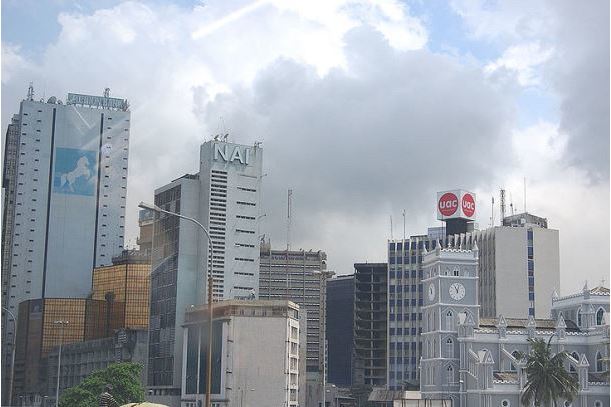Latest News
Nigeria’s manufacturing sector grows for second consecutive month

News Highlight
Ten out of the sixteen subsectors reported growth in May.
The Central Bank of Nigeria (CBN) has reported that the country’s manufacturing sector expanded for the second consecutive month in May owing to growth in production and new orders.
The apex bank said the Purchasing Managers Index (PMI) for the manufacturing sector rose to 52.5 points in May from 51.1 points recorded the previous month. In the first quarter of 2017, the PMI reading was below 50 points, according to a statement released on Thursday.
A PMI reading above 50 points indicates an expansion in the manufacturing/non-manufacturing sector, while readings below 50 points indicates a decline. A reading for 50 points indicates no change.
The growth in manufacturing PMI can be attributed to the expansion in production, which rose for the third consecutive month to 58.7 points, and new orders, which rose for the second consecutive month to 50.5 points. Raw materials inventory and employment level also recorded growth, but supply deliver-time declined during the month under review.
A breakdown of the manufacturing PMI shows that 10 of the 16 subsectors reported growth in May in the following order: primary metal; petroleum & coal products; plastics & rubber products; paper products; electrical equipment.
Others sectors are: appliances & components; textile, apparel, leather & footwear; cement; and food, beverage & tobacco products and chemical & pharmaceutical products.
The remaining six sub-sectors declined in the following order: transportation equipment; nonmetallic mineral products; fabricated metal products; printing & related support activities; furniture & related products and computer & electronic products.
The non-manufacturing PMI grew to 52.7 points in May after 16 consecutive months of contraction. The expansion was supported by growth in business activity, new orders, employment level, and inventory.
Out of the 18 non-manufacturing sub-sectors, 10 sectors recorded growth in the following order: agriculture; transportation & warehousing; educational services; electricity, gas, steam & air conditioning supply.
Other sectors are: utilities; information & communication; water supply, sewage & waste management; accommodation & food services; health care & social assistance; and finance & insurance.
The remaining eight sub-sectors recorded contraction in the following order: construction; professional, scientific, & technical services; public administration; management of companies; arts, entertainment & recreation; real estate rental & leasing; repair, maintenance/washing of motor vehicles; and wholesale/retail trade.
Related News
Latest Blogs
- Tinubu, Fubara, Wike and the fragility of democracy
- Historical insights for Nigerian Cabotage Vessel Financing Fund
- Rethinking Nigeria's development for people-centred outcomes
- Moving from prohibition to regulation, what’s next for crypto in Nigeria?
- The way out of Africa’s unsustainable debt and underdevelopment
Most Popular News
- Artificial intelligence can help to reduce youth unemployment in Africa – ...
- African Development Bank elects Sidi Ould Tah ninth president
- Valor Hospitality announces two deals in Nigeria, Senegal
- Global space economy market to surpass $511 billion in 2029
- GenAI to mostly transform and not replace 25% of exposed jobs
- AWIEF opens nominations for 2025 awards for Africa’s women entrepreneurs









